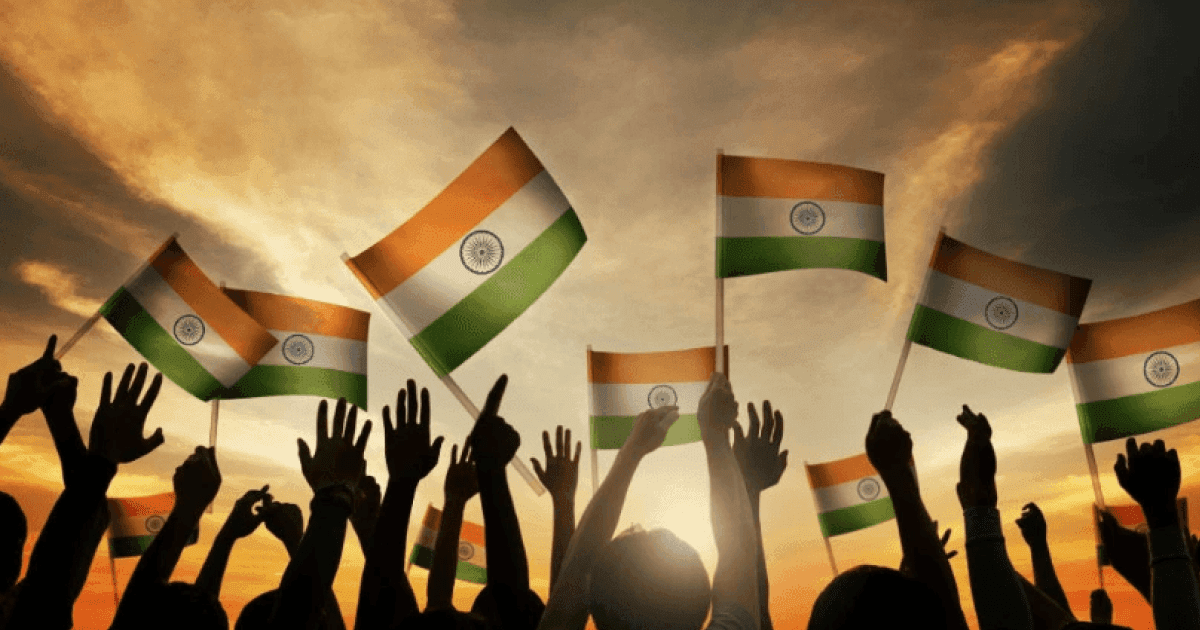
Copyright © 2025. All rights reserved.
In today's interconnected world, the Indian diaspora spans continents, creating vibrant communities that contribute to the cultural and economic fabric of their adopted homes. Yet, no matter how far you are, the question of where you come from remains compelling. Tracing one's roots and cultural heritage is a profound journey that many individuals embark upon, especially those belonging to the vast and diverse Indian diaspora. DNA testing has emerged as a revolutionary tool for individuals of Indian descent to uncover their roots, bridging the gap between past and present and connecting global Indians to their ancestral heritage.

The Indian diaspora refers to the massive spread of people of Indian origin living outside India. This diaspora has been shaped by historical events such as colonisation, occupation, and economic opportunities. Today, Indian communities can be found in countries across the world, each retaining a unique blend of Indian culture within their new environments.
DNA testing has helped genealogy researchers by offering them the opportunity to uncover ancestral origins with unprecedented accuracy. By analysing genetic markers, DNA testing can trace a person's lineage back to specific regions, providing insights into their familial and ethnic background. For global Indians seeking to reconnect with their Indian roots, DNA testing is a powerful way to bridge the gap between their present identity and heritage.
When you purchase a DNA testing kit, you receive a simple set of instructions. Typically, you provide a saliva sample, which is then sent to a laboratory for analysis. The lab examines specific markers in your DNA, comparing them to a vast database of genetic information to provide insights into your ancestry. For individuals of Indian descent, these tests can reveal a multitude of details about your ethnic composition. Your results might show connections to various regions of India, from Punjab to Kerala, or even links to neighbouring countries like Pakistan, Bangladesh, and Sri Lanka, highlighting the shared genetic heritage of the subcontinent.
DNA testing provides more than just a pie chart of your genetic makeup. It can connect you with living relatives you never knew existed. By comparing your DNA test results with others in the company's database, these services can identify potential relatives and help you connect with them. This can be particularly meaningful for individuals whose families migrated generations ago and have since lost touch with their ancestral villages or towns.
Imagine discovering that you have a third cousin living just a few cities away or halfway across the world. These newfound connections can open opportunities for family reunions, collaborative family history projects, and sharing photographs and stories that might otherwise have been lost to time.
The history of Indian migration is rich and varied. From indentured labourers who travelled to the Caribbean, Fiji, and Mauritius in the 19th century to the professionals and students who have recently made their mark in countries like the United States, Canada, and the United Kingdom, the Indian diaspora's roots are deep and widespread.
DNA testing can provide insights into these migration patterns. By analysing the genetic data of large populations, researchers can trace the paths taken by your ancestors, shedding light on the historical events and socio-political factors that influenced their movements. This can offer a better understanding of how Indian communities have evolved and adapted over time in different parts of the world.

One of the most profound impacts of DNA testing is the sense of belonging it can develop. For many in the Indian diaspora, especially those who feel disconnected from their heritage, DNA testing can be a turning point in reconnecting them with their cultural roots. Knowing your genetic ancestry can inspire you to learn more about your ancestral regions' traditions, languages, and histories. You might find yourself exploring Indian history with renewed interest, visiting the places your ancestors once lived, or learning the languages they spoke. This journey of discovery can also be a meaningful way to share your heritage with the next generation, ensuring that your family's stories and traditions are preserved and celebrated.
Conclusion
Tracing Indian diaspora roots through DNA testing is a personal journey that offers a deeper connection between your heritage and cultural identity. By leveraging the power of genetic analysis, global Indians can solve the mysteries of their ancestry and gain a newfound appreciation for the diversity of Indian culture. As technology advances, DNA testing will undoubtedly play an increasingly important role in helping individuals across the diaspora reconnect with their Indian roots.
As you embark on this journey, you'll discover that DNA testing is more than just a scientific endeavour; it's a way to embrace your identity, celebrate your heritage, and connect with a global community of Indians who share your history. Whether you're uncovering the migration patterns of your ancestors or reconnecting with long-lost relatives, DNA testing offers a profound way to understand where you come from and how you fit into the broader story of the Indian diaspora.
Take the iMeUsWe Genomepatri Heritage test to discover your ancestral origins.
Available on Play store and App store.
Did you find this insightful?